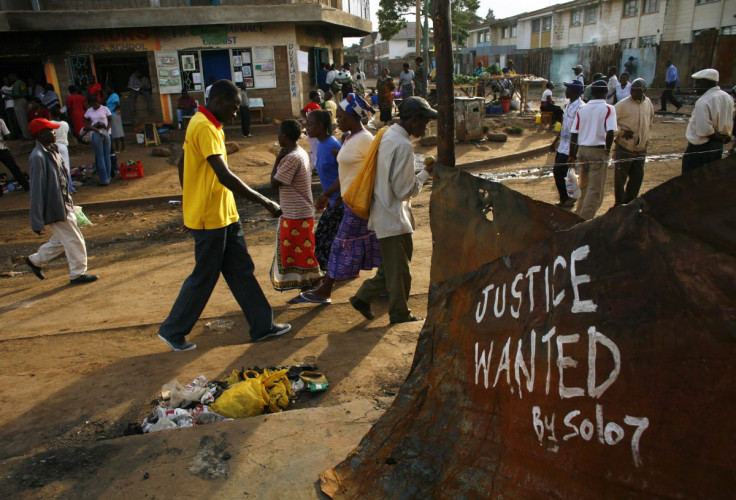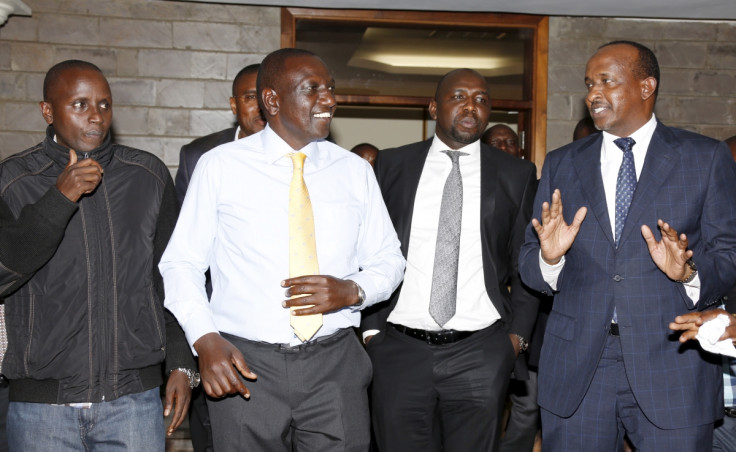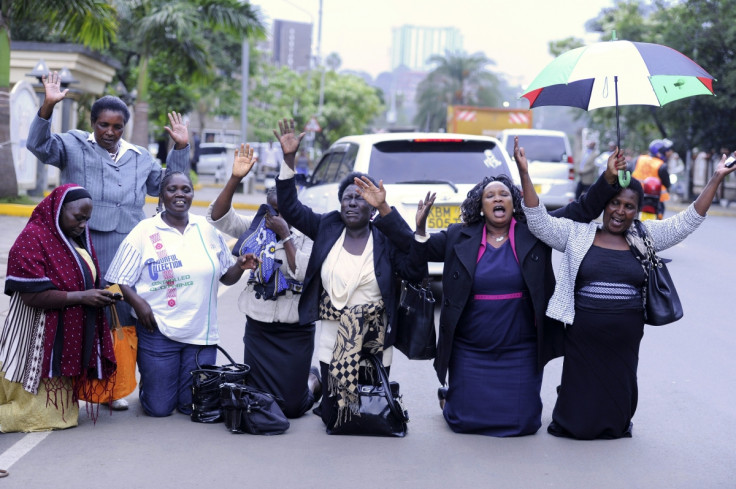Kenya: William Ruto crimes against humanity trial collapse 'undermines the ICC'

The dismissal of case against Kenya's vice-president William Ruto and his co-accused journalist Joshua Arap Sang's is a big blow to the International Criminal Court (ICC), rights groups have said. The accused each faced three charges – murder, deportation or forcible transfer of population, and persecution – over unrest that followed the African nation's 2007 elections.
Around 1,200 people were killed and more than 600,000 were displaced in Kenya between December 2007 and February 2008, a period marred by mass violence and ethnic killings. In 2014, rights groups estimated the post-election violence may have included 40,000 incidents of sexual and gender-based violence.
Despite the ICC's efforts to bring to justice those responsible for Kenya's deadly violence, a majority decision made by two of the three judges ruled that the men's crimes against humanity case was to be terminated.
Of the two judges who formed the majority of the three-judge panel, only one would have acquitted the defendants, while the other two would have declared a mistrial because of the "serious tainting of the trial process by way of witness interference and political intimidation of witnesses".
Trial marred by bribery and threats
Human Rights Watch (HRW) claimed the trial was marred by bribery and threats, which the group said interfered with the search for the truth.
According to the ICC prosecution, at least 16 of its original 42 witnesses withdrew, most citing threats, intimidation or fear of reprisals. Meshack Yebei, who was described by Ruto's defence as a "critical witness" was apparently murdered in late December 2014 or early January 2015.
Keriako Tobiko, Kenya's director of public prosecutions, ordered police to carry out a "speedy and thorough investigation" into Yebei's murder in January 2015, but Kenyan authorities have yet to make any results of investigations into his death public.
"Sadly, this case will be remembered for an apparent campaign to corrupt witnesses. Many Kenyans had supported justice for crimes committed during the post-election violence, but those hopes are likely to disintegrate now given the lack of action in Kenya and the seeming obstruction of the process in The Hague," said Elizabeth Evenson, senior international justice counsel at HRW.

'Intense campaign to undermine the ICC'
"People who stepped forward to testify in this case put themselves at risk, while bribery and threats interfered with the search for the truth," said Evenson, whose organisation also accused President Uhuru Kenyatta's administration of allegedly pursuing an "intense campaign to undermine the ICC", lobbying the African Union and other regional groups, the United Nations Security Council and the ICC Assembly of States Parties.
The absence of convictions before the ICC continues a cycle of impunity in Kenya, HRW said. "The Kenyan government set out to undermine the ICC, while it turned its back on its responsibilities to provide justice and to stop threats against witnesses and human rights defenders," Evenson said. "While Ruto and his supporters may celebrate the ICC decision, the victims who have already suffered so much may well now end up without justice or the help they need."
A total of 954 victims were registered to participate in the ICC case against Ruto and Sang, while 839 victims participated in the ICC case against President Kenyatta, whose charges were officially withdrawn in 2015 in a parallel ICC case.
Continued 'efforts to ensure justice for victims'
Amnesty International, meanwhile, insisted the decision to drop the cases "must not derail efforts to ensure justice for victims of the 2007/8 post-election violence".
"This decision could be seen as a major setback by thousands of victims who have waited so long for justice," said Michelle Kagari, deputy regional director for Africa, the Horn and the Great Lakes. "However, this is not the end of the road for the victims. In fact, victims should be able to seek justice for these crimes in the future as the accused have not been acquitted, and can be re-prosecuted for these charges either by the ICC or domestically."
The rights group called for renewed efforts to ensure that those accused of crimes under international law during Kenya's 2007-2008 violence are brought to justice, including through fair trials in Kenya's national courts, and insisted for all responsible to be held accountable.
Indeed, given the level of witness interference, the judges both agreed to vacate the charges to leave open the possibility that the ICC prosecutor could bring charges again. The fact that at least one of the judges would have allowed the case to continue means the decision may yet be subject to appeal.
"The ICC should strengthen the quality and scope of its investigations, as well as victim and witness protection measures. International pressure should also be intensified against governments that obstruct or fail to cooperate with the ICC's investigations. Individual states should also seek to apply universal jurisdiction to crimes against humanity cases in Kenya," Amnesty recommended.

© Copyright IBTimes 2025. All rights reserved.






















